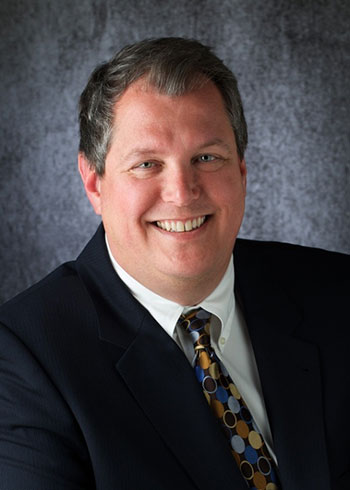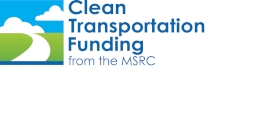 Matt Raymond, the MSRC's newest member, enjoys the challenge that comes with providing efficient and innovative transportation programs to a large metropolitan area like Los Angeles, which is what brought him to Metro nearly nine years ago.
Matt Raymond, the MSRC's newest member, enjoys the challenge that comes with providing efficient and innovative transportation programs to a large metropolitan area like Los Angeles, which is what brought him to Metro nearly nine years ago.
Matt is Metro's Chief Communications Officer, overseeing a comprehensive communications program that involves marketing several major capital projects, and building Metro's brand recognition. The positive perception of Metro is now at record levels, thanks to Matt's work. "I came to Metro because of the challenge Los Angeles presented from a transportation environment, looking at where it was and what it is today," Matt said. "Metro presented a great opportunity to help shape the future of transportation and make a difference."
One of the most important and exciting ways that Matt has helped shape the future of transportation in the region was his work on Measure R. Matt spearheaded the Measure R initiative for Metro, which will bring more than $40 billion in funding to Los Angeles County over the next 30 years for new transportation projects. Matt saw the need and demand for additional sources of transportation funding and believed that if they put together the right package, it could set the stage for LA's transportation future.
"I view transportation as an economic engine for the region - not just in terms of getting people to-and-from work, but also in terms of job creation. It is a vital tool that drives the economy, not just a social service, and we needed to position Measure R in this way in order to gain the public's support." The two primary questions he faced in bringing a sales tax measure to the ballot was if enough voters would support it, and if so, would it generate enough revenue.
Initial polling showed public support at 60%, yet a two-thirds vote was needed to pass the measure. To increase public support, Matt spearheaded Metro's "Imagine" campaign in early 2008 where the public was asked to imagine what would be possible if Los Angeles had a better transportation system, and tied this campaign to Metro's Long Range Transportation Plan. This campaign helped boost public support to 70%. With that, Matt brought the Measure R initiative to Metro's Board of Directors and won the Board's backing to put it on the November 2008 ballot. It passed by a little more than 67% of the vote. Matt continues his work with Measure R, by marketing and promoting Measure R-funded projects that are currently underway.
During his twenty years working in transportation, Matt has led the marketing and advertising efforts for Dallas Area Rapid Transit (DART) and Denver, Colorado's Regional Transportation District. While at DART, he worked with then-DART CEO Roger Snoble, who went on to become Metro's CEO in 2001. Roger brought Matt to Metro to head up its communications programs.
"My work with different transit agencies showed me the things that can work from region to region," Matt said. This is especially important as Metro continues to serve in a leadership role nationwide with its innovative transportation and environmental policies. Matt commended Metro's Board for always being at the environmental forefront. He pointed to Metro's Alternative Fuel Initiative, adopted by the Board in 1993, making it agency policy to acquire only alternative fuel buses and phase out the use of diesel buses. This month, Metro retired its last diesel bus, and is the first major transportation agency in the world to have an all clean-fueled fleet.
"This kind of program can be replicated in other regions and allows Metro to demonstrate that initiatives like this can be successful." Matt highlighted the fact that Metro's partnerships with other organizations were a key element in making Metro's fleet conversion a reality, and that the MSRC was instrumental in making this a success.
"Metro couldn't have done it without the MSRC," explained Matt. The MSRC provided $18 million in Clean Transportation Funding to Metro over the years to help fund 987 CNG buses. "MSRC funding was critical to making this transition possible." Matt said that often incremental transitions go unnoticed until there is a major milestone - like the symbolic gesture of towing away the last diesel bus - but that Metro's accomplishment was greatly celebrated across the country and the story was picked up in more than 100 publications worldwide.
Matt is hoping that his new role on the MSRC can help guide future successes like Metro's complete fleet conversion. "I like to make things happen and be part of an organization that also likes to make things happen," he replied. "The MSRC is an organization that makes a lot of difference and is targeted in its purpose in a way that other organizations aren't."
Although he only joined the MSRC three months ago, already he is brimming with ideas of where he would like to see the MSRC go in the future. "I'd like to see the MSRC continue to promote areas where they are making good progress and also work in areas that are deficient and could benefit from the MSRC's assistance." One of the projects he is particularly excited about is the Event Center Transportation Program, a new Work Program category for 2011-12 (see Work Program article). "There are a lot of event centers across the Southland, so this could really make a difference," he noted.
Another area where he would like to see the MSRC get more involved is alternative modes of transportation. In the other transportation agencies where Matt has worked, he has seen great success with programs such as low density shuttles to feed transportation lines and ridesharing. "Ridesharing is a fairly untapped market in the Los Angeles area. It exists and is successful for those who participate, but we need to shed more light on where it's working and make the public more aware," Matt explained. "We've already made investments with carpool lanes, so we need to build on these investments."
He briefly discussed some of the progressive clean air standards in the construction and development industry already in place in the South Coast, and remarked that he would like the MSRC to see how it can continue to assist in that area. Given his marketing background, Matt also would like to see the MSRC work on projects where it can position the region to work more with businesses to advance clean air initiatives through transportation programs, such as vanpooling and carpooling. "Metro has the fastest growing vanpool program in the country, with more than 1,000 vanpools, and is number one in terms of miles traveled," he noted.
Matt has big plans for his tenure on the MSRC. And it sounds like he is up for the challenge.
